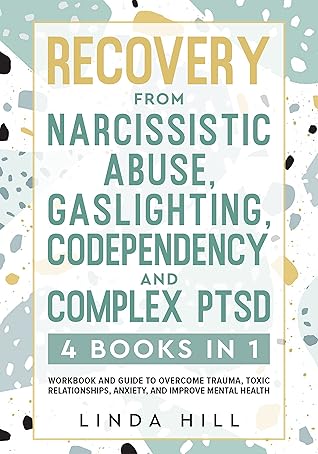More on this book
Community
Kindle Notes & Highlights
by
Linda Hill
Relationships with narcissists are held in place by the hope of a ‘someday better’, with little evidence to support it will ever arrive. –Ramani Durvasula
Grandiose perspective of their accomplishments, talents, and capabilities
Focus on superficial things (e.g. appearance, possessions, social status, etc.)
Expectation of special treatment, even when it’s not deserved
Using manipulation and lying to get what they want, even if it means exploiting or taking advantage of others for their own wants
Deficit in their ability to regulate their self-esteem
Lack of accountability for their actions, and negative reaction to criticism
Classic: This group is the stereotypical narcissists who openly and unapologetically display the above personality traits. They don’t see how their behavior is wrong or hurtful, and will actually point the finger elsewhere, deflecting all blame or wrongdoing on others.
Overt: This group practices methods that are out in the open for everyone to see. The classic and communal groups are always overt.
Absorbing manipulative tactics from caregivers, siblings, or friends
Unclear boundaries or expectations
Experiences of trauma, neglect, abandonment, or abuse in childhood
Things are happening way too fast for comfort.
The bomber will come across as extreme and over-the-top in their approach.
They always tell you what you want to hear, even regarding your insecurities, with no sense of genuinity.
If they think you’re not responding positively, they’ll take steps back until they hit the right response.
They tell you that you aren’t remembering something right or that you’re plain out wrong when you know you are right.
They withhold information, then act like they don’t know what you’re talking about.
They make you doubt your own thoughts by questioning the validity of them.
Deflection: Anyone who has tried winning an argument with a narcissist is well-versed in this strategy. This is the act of avoiding an issue or problem by talking around it until the initial subject matter is lost or forgotten.
Distortion: This is a tactic where the narcissist twists the truth around in such a way, you actually doubt yourself, even though the facts were clear in your mind before confronting the narcissist.
They’re always trying to prove themselves as being right.
They jump to conclusions based on what they think rather than on facts.
They’ll either magnify the importance of specific details, or minimize or completely disregard them.
They play the emotional card, overshadowing any sense of logical thinking.
Never underestimate them. This is a group of individuals who are never satisfied on any level.
Be on guard and second-guess every word they say, especially any hints of their willingness to change.
Empathy isn’t going to happen.
Rather than trying to make them understand this, focus more on honoring and respecting yourself by staying behind your boundaries
Never give them ammo. Guard your thoughts, feelings, and other areas of your inner self carefully.
Don’t expect their support.
You don’t owe them explanations or justifications.
Never minimize or downplay their behavior.
Don’t expect accountability. This point has been touched on earlier, but understanding that they won’t take onus for their behavior saves a lot of time and energy.
Let go of blame.
Empathize with their feelings.
Let them think you’re in it together.
Put yourself first.
They were perfect… initially.
Others don’t see the narcissist the way you do.
You feel symptoms of anxiety and/or depression.
You feel alone. Also a common symptom of abuse. If things are really wrong, the narcissist may have isolated you from friends or family either by things they’ve done themselves or by making you believe no one is there for you.
You lost touch with the real you. The person you become when with a narcissistic abuser is very different from the person you were before you got involved with them.
You never feel like you do anything right.
Understand your personal rights.
Re-set your boundaries.
Have consequences.
Trust issues: Being mentally abused to the point where a person doubts themselves, or doesn’t even trust themselves or others, it can create severe trust issues.
No more chances. You’d think a person who treated you unworthy of being with them would have no problem letting you go, right? Wrong. In fact, they may even initially beg you to stay, make promises to change, share their sob stories, or even go back to love-bombing you to change your mind.
Don’t tell them you’re leaving right away.


